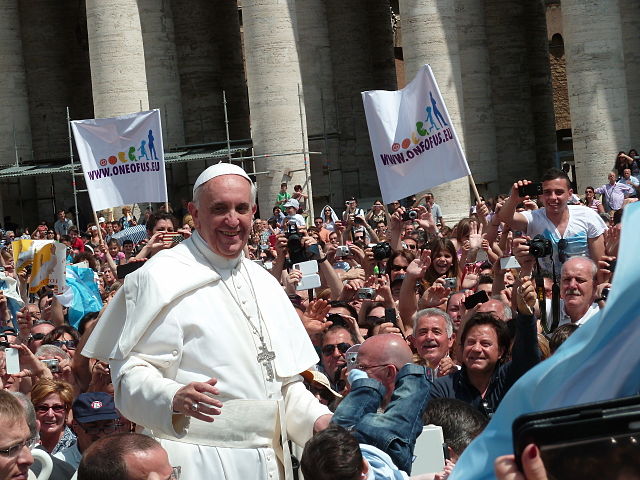Recent years have exposed the emptiness of the free market ideology — arguably a theology — and U.S. intervention. In turn American voters have staged some dramatic about-faces: from George W. Bush to Barack Obama (or our idealized version of him before he proceeded to continue and even double-down on — surveillance — some of Bush’s policies); from Scott Brown to Elizabeth Warren; and Mike Bloomberg to Bill de Blasio. But none of these can compare with the series of popes culminating in the ossified Benedict XVI to Francis, who didn’t take long to reveal himself as a champion of the dispossessed (and I’m speaking as a former Catholic to whom no love was lost on the church).
But when he (and, presumably, his staff) issued his papal encyclical letter Laudato Si’: On Care for Our Common Home, it surpassed all expectations — even for cutting-edge environmentalist and author Bill McKibben. In the recent New York Review of Books, he writes:
Laudato Si’ does not disappoint. It does indeed accomplish all the things that the extensive news coverage highlighted: insist that climate change is the fault of man; call for rapid conversion of our economies from coal, oil, and gas to renewable energy; and remind us that the first victims of the environmental crisis are the poor.
… Francis’s words fall as a rock in this pond, not a pebble; they help greatly to consolidate the current momentum toward some kind of agreement at the global climate conference in Paris in December. He has, in effect, said that all people of good conscience need to do as he has done and give the question the priority it requires. The power of celebrity is the power to set the agenda, and his timing has been impeccable. On those grounds alone, Laudato Si’ stands as one of the most influential documents of recent times.
But McKibben is just getting warmed up in his praise for Francis and his letter.
It is, therefore, remarkable to actually read the whole document and realize that it is far more important even than that. In fact, it is entirely different from what the media reports might lead one to believe. Instead of a narrow and focused contribution to the climate debate, it turns out to be nothing less than a sweeping, radical, and highly persuasive critique of how we inhabit this planet—an ecological critique, yes, but also a moral, social, economic, and spiritual commentary.
Thus the pope gave the environmental movement — not to mention giving capitalism a makeover — his blessing and one of the environmental movement’s most influential voices, Bill McKibben, gave the pope his blessing.

